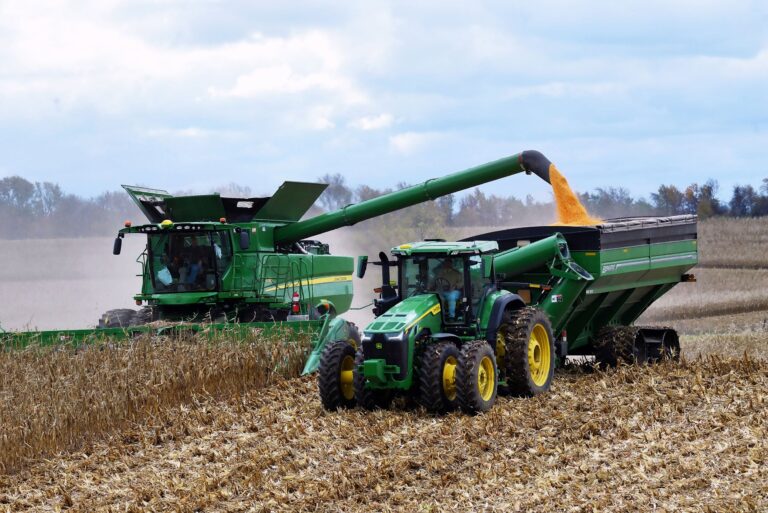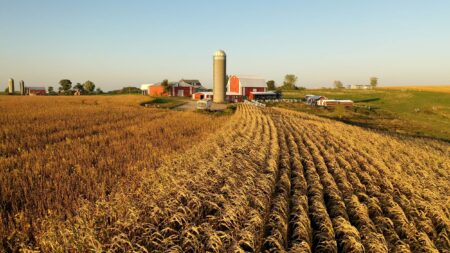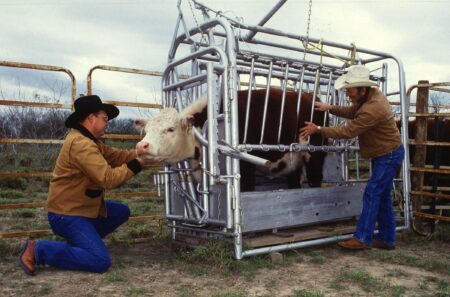Benjamin Franklin famously said, “In this world, nothing is certain except death and taxes.” The Founding Father didn’t know it then, but sometimes those two constants happen in quick succession.
For farm families, estate taxes aren’t just an abstract policy debate — they’re a very real threat to generational farms and the livelihoods they support. While tax policy tends to fly under the radar for most people, recent developments out of Washington, D.C., are once again putting the federal estate tax front and center, especially for the agricultural community.
This time the story starts with the 2017 Tax Cuts and Jobs Act (TCJA), which dramatically increased the federal estate and gift tax exemption. That exemption — essentially the amount of wealth a person can pass on without triggering the federal estate tax — was doubled under the TCJA. For 2024, that amount sits at $13.61 million per person, or $27.22 million for a married couple. But, as with many things in tax law, it came with an expiration date. When the calendar flips to January 1, 2026, the exemption will drop back down to its pre-TCJA levels, adjusted for inflation. That means a single person could pass on only roughly $7 million before the estate tax bill comes due.
At the same time, the Trump administration is proposing new legislation that would raise the exemption again. Its latest proposal would increase the exemption to $15 million per person, essentially making the TCJA levels permanent and then some. It’s a bold proposal, but with a divided Congress and a contentious election season ahead in many areas of the U.S., there’s no guarantee it will pass. That leaves families — especially farm families — stuck in a state of limbo, trying to plan for a future that feels like a moving target.

For most Americans, these exemption amounts might seem so high they’re almost irrelevant. But for farmers, they are anything but.
Unlike liquid assets like stocks or bank accounts, a farm’s value is often tied up in land, equipment, and other hard assets. It’s not uncommon for a modest, family-run farm to be worth millions of dollars on paper, even if the family running it isn’t living a life of luxury. When those hard assets are included in an estate calculation, especially as the value of an acre increases, it doesn’t take long for farmland to hit the exemption threshold.
Here’s where the real problem comes in: Land-rich but cash-poor families may be forced to sell land, equipment, or even the farm itself just to pay the estate tax bill. That’s not just a financial inconvenience — it’s a devastating blow to families who have spent generations building their operations with the intention of passing them on to their children and grandchildren. In essence, the estate tax can become a death tax on the farm, forcing heirs to liquidate the very thing they were meant to inherit.
The current uncertainty surrounding the exemption only amplifies these challenges. Estate planning is not something you do overnight. Farmers need to know the rules of the road well in advance so they can make informed decisions about succession planning, gifting strategies, and business structures. When those rules keep changing — or when we don’t even know what they’ll be in a year or two — it creates a planning nightmare. Do you make drastic changes now in anticipation of a lower exemption? Or do you hold off and hope that Congress raises it again?


For farmers, this is more than a tax issue — it’s a question of legacy. Every acre of farmland represents years of hard work, sacrifice, and stewardship. While the predictability makes planning difficult, the expiration of the TJCA exemptions makes it impossible. It risks our cultural heritage of generational farming. And it’s not just the farm families that are impacted. When farmland gets chopped up and sold off, it affects rural economies, local food production, and agricultural communities.
As an estate planning attorney, I see firsthand how this uncertainty weighs on families. The best advice I can give is to be proactive. Don’t wait for Congress to make up its mind. Anyone with a farm or family business should consult with an estate planning attorney now to evaluate their situation and consider strategies to mitigate potential tax burdens. Even if the laws change again, having a solid plan in place is far better than scrambling at the last minute.
Estate taxes may not grab headlines like other political issues, but for those of us who understand the intersection of estate planning and agriculture, it’s a big deal. If the current exemptions are allowed to expire, we’ll see a lot more generational farms sold to pay Uncle Sam. And that’s not the legacy anyone wants for family farms.
Amanda Zaluckyj blogs under the name The Farmer’s Daughter USA. Her goal is to promote farmers and tackle the misinformation swirling around the U.S. food industry.


:max_bytes(150000):strip_icc()/102129579_farm_field-c8972d5c58064f75807199f40698da9a.jpg)
:max_bytes(150000):strip_icc()/Early-season-corn-cow-dark-skies-light-blue-8beb4c85b3d14638adbfb7879e213690.jpeg)
:max_bytes(150000):strip_icc()/Corn-harvest-John-Deere-combine-North-Dakota-Lee4-d38eaec16d2f4354b26b67d45246c82d.jpg)








